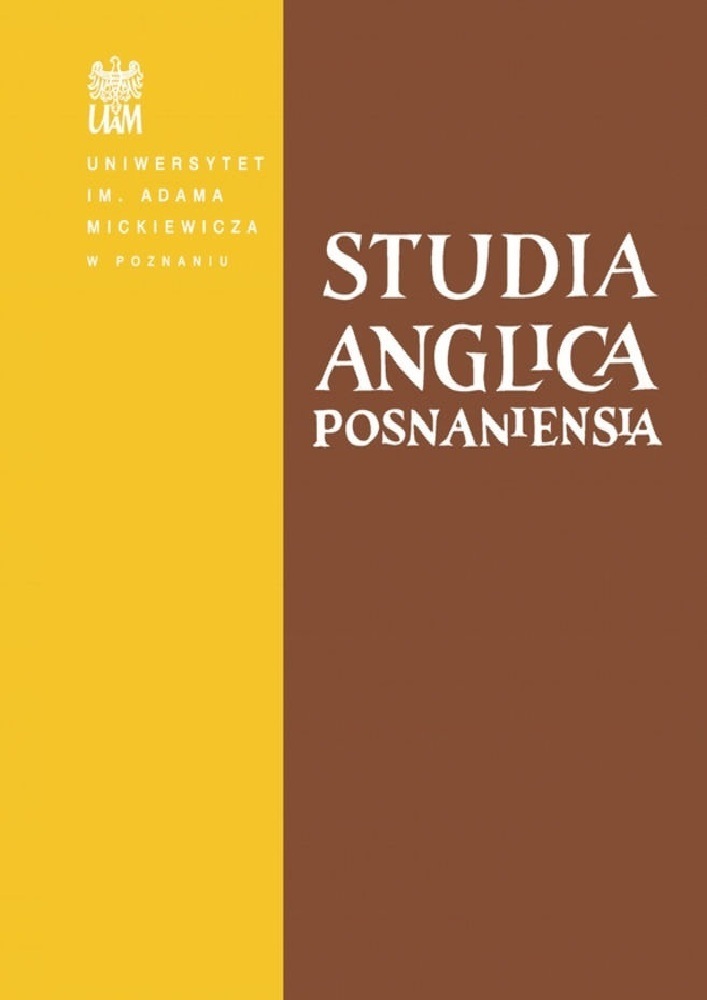Abstract
This article examines the affective terrain of Poland, Canada, and the US in Eva Hoffman’s autobiographical account of her migration and exile in Lost in Translation: A Life in a New Language (1989), the text that launched Hoffman’s reputation as a writer and intellectual. Hoffman’s Jewish family left Poland for Vancouver in 1959, when restrictions on emigration were lifted. Hoffman was 13 when she emigrated to Canada, where she lived until she went to college in the US and began her career. Lost in Translation represents her trajectory in terms of “Paradise,” “Exile,” and “The New World,” and the narrative explicitly thematizes nostalgia. While Hoffman’s nostalgia for post-war Poland has sometimes earned censure from critics who draw attention to Polish anti-Semitism and the failings of Communism, this article stresses how Hoffman’s nostalgia for her Polish childhood is saturated with self-consciousness and an awareness of the politics of remembering and forgetting. Thus, Hoffman’s work helps nuance the literary and critical discourse on nostalgia. Drawing on theories of nostalgia and affect developed by Svetlana Boym and Sara Ahmed, and on Adriana Margareta Dancus’s notion of “affective displacement,” this article examines Hoffman’s complex understanding of nostalgia. It argues that nostalgia in Lost in Translation is conceived as an emotion which offers the means to critique cultural practices and resist cultural assimilation. Moreover, the lyricism of Hoffman’s autobiography becomes a mode for performing the ambivalence of nostalgia and diasporic feeling.
References
Ahmed, Sara. 2010. Happy objects. In Melissa Gregg and Gregory J. Seigworth (eds.), The affect theory reader, 29-51. Durham: Duke University Press.
Angé, Olivia and David Berliner. 2015. Introduction: Anthropology of nostalgia-anthropology as nostalgia. In Olivia Angé and David Berliner (eds.), Anthropology and nostalgia, 1-16. New York: Berghahn.
Baranczak, Stanislaw. 1990. Breathing under water and other East European essays. Cambridge: Harvard UP.
Berberich, Christine, Neil Campbell & Robert Hudson. 2013. Affective landscapes: An introduction. Cultural Politics 9(3). 313-322.
Boym, Svetlana. 2001. The future of nostalgia. New York: Basic Books.
Culler, Jonathan. 2008. Why lyric? PMLA 123(1). 201-206.
Dancus, Adriana Margareta. 2011. Diasporic feeling and displaced nostalgia: A case study: Importeksport and Blodsbåxnd [sic]. Scandinavian Studies 83(2). 247-266.
Fjellestad, Danuta Zadworna. 1995. The Insertion of the self into the space of borderless possibility: Eva Hoffman’s exiled body. MELUS 20(2). 133-147.
Friedman, Susan Stanford. 2004. Bodies on the move: A poetics of home and diaspora. Tulsa Studies in Women's Literature 23(2). 189-212.
Gitenstein, Barbara R. 1997. Eva Hoffman: Conflicts and continuities of self. In Thomas S. Gladsky and Rita Holmes Gladsky (eds.), Something of my very own to say: American women writers of Polish descent (East European Monographs CDXCIV), 261-76. Boulder, Colorado [New York]: distributed by Columbia University Press.
Herman, David. 2005. Yesterday’s self: Nostalgia and the immigrant identity. Symploke 13(1-2). 360-362.
Hirsch, Marianne. 1994. Pictures of a displaced girlhood. In Angelika Bammer (ed.), Displacements: Cultural identities in question, 71-89. Bloomington: Indiana University Press.
Hirsch, Marianne and Leo Spitzer. 2002. “We would not have come without you”: Generations of nostalgia. American Imago 59(3). 253-76.
Hoffman, Eva. 1993. Exit into history: A journey through the new Eastern Europe. New York: Penguin.
Hoffman, Eva. 1998 [1989]. Lost in translation: A life in a new language. London: Vintage.
Hoffman, Eva. 2013. Out of exile: Some thoughts on exile as a dynamic condition. European Judaism 46(2). 55-60.
Hoffman, Eva. 2006. The uses of the past. In Vesna Goldsworthy (ed.), Writing worlds 1: The Norwich exchanges, 13-19. Norwich: Pen & Inc Press.
Jameson, Fredric. 1991. Postmodernism or, the cultural logic of late capitalism. Durham: Duke University Press.
Karlsson, Lena. 2001. Multiple affiliations: Autobiographical narratives of displacement by (im)migrant US women (Skrifter från moderna språk 2). Umeå: Umeå University.
Levine, Madeline. 2003. Eva Hoffman: Forging a postmodern identity. In Halina Stephan (ed.). Living in translation: Polish writers in America, 215-233. Amsterdam: Rodopi.
Macpherson, Heidi Slettedahl. 2008. “There is no world outside the text”: Transatlantic slippage in Eva Hoffman’s Lost in translation. In Transatlantic Women’s Literature, 87-105. Edinburgh: Edinburgh University Press.
Matt, Susan J. 2011. Homesickness: An American history. Oxford: Oxford University Press.
Phillips Casteel, Sarah. 2001. Eva Hoffman’s double emigration: Canada as the site of exile in Lost in translation. Biography 24(1). 288-301.
Scanlan, Sean. 2004. Introduction: nostalgia. Iowa Journal of Cultural Studies 5. 3-9. ir.uiowa.edu. (accessed 27 April, 2015. )
Stephan, Halina (ed.). 2003. Living in translation: Polish writers in America. Amsterdam: Rodopi.
Stephan, Halina. 2003. Introduction: The last exiles. In Halina Stephan (ed.). Living in translation: Polish writers in America, 7-28. Amsterdam: Rodopi.
Todorova, Maria. 2010. Introduction: From utopia to propaganda and back. In Maria Todorova and Zsuzsa Gille (eds.), Post-communist nostalgia, 1-13. New York: Berghahn
